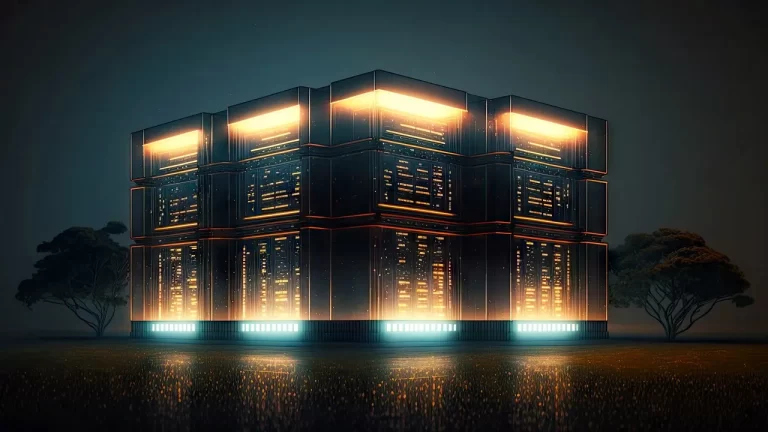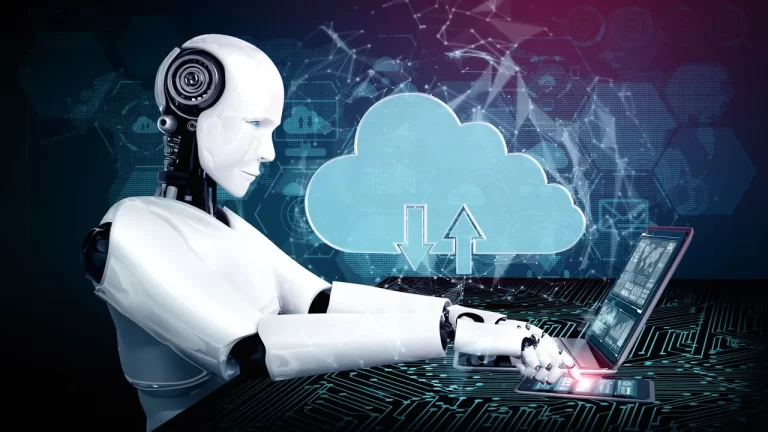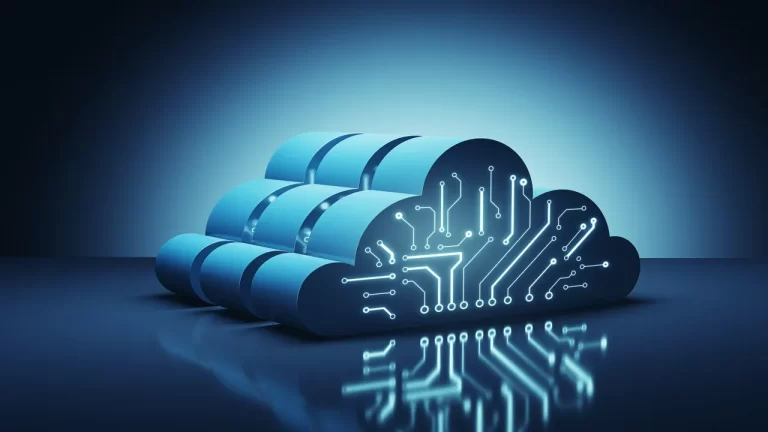In 2025, due to changes, growth, and developments for data centers regarding the increase of active traffic and more efficiency and sustainability, artificial intelligence becomes a must. Namely, Grok AI, developed by the xAI, is a leading solution in this regard. Developed using sophisticated neural structures and having access to vast computing resources, Grok AI introduces a smart and flexible solution to data center management. Real-time actionable anomaly detection, accurate prediction of maintenance, and a continuous learning process help data centers work with less disturbance and are more robust. If organizations are to establish the increasingly complex environment of hyperconnectivity, then Grok AI provides the competitive edge that ensures adaptability as well as dependability.
It is not just about the automation of data center workloads but about how choices happen at scale via Grok AI. It can process multiple types of data and evaluate how the entire system performs under different conditions and with various loads, therefore making Grok AI useful for moving from a reactive to a proactive model in IT. This not only helps in reducing the possibilities of unnecessary breakdowns, wastage of energy, resources, and time, but also in managing the activities during operations. By 2025, any data center employing Grok AI will not simply be meeting the current optimal norms but achieve new heights for effectiveness, efficiency, and smarts in data center technologies.
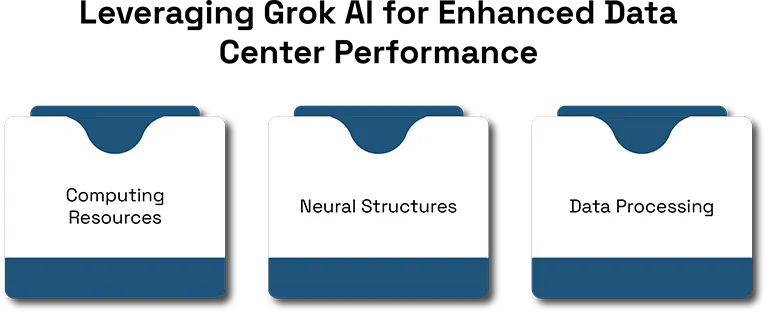
Advanced Anomaly Detection with HTM Algorithms
Conventional methods of IT monitoring also involve the use of thresholds where one or more parameters are set and alerts raised when the values cross that threshold, as this is not suitable in scenarios where the parameters are constantly changing in the IT environment. Grok AI solves this problem using the Hierarchical Temporal Memory branch of algorithms, which is based on the anatomy of the human brain. These algorithms allow Grok AI to capture normal working behaviors to the extent that they can detect when there are anomalies that may indicate an issue. This makes the incidence of service interruption detectable before it occurs so that corrective action is initiated in advance.
Grok AI can identify patterns that might not be discernible through other conventional means because it can review real-time performance data streams on an ongoing basis. It is significant in creating confidence regarding high availability and high-performance goals of data centers since problems are contained and solved as soon as possible before they become big issues. In this regard, the proliferation of HTM algorithms constitutes the enhancement of operation resilience in data centers.
Intelligent IT Infrastructure Modeling
Modern IT systems are complex and constantly evolve, thus there is a need of developing appropriate and dynamic models. Grok AI is especially effective in this aspect in that no manual configuration or intense IT knowledge is required to develop and apply its models. This capability makes it possible to plug into the current infrastructure model and update this model constantly to have increases in the monitoring and management.
From the current scenario, it is stated that Grok AI continuously learns the modeling of infrastructure as per the newer patterns and configurations, which makes it highly suitable for the dynamic change in the IT environment. Organizations must stay at the pinnacle of productivity and adapt very fast in case of any adversity or an emergent problem in their data centers, which can be met through the use of these fundamental, yet effective concepts.
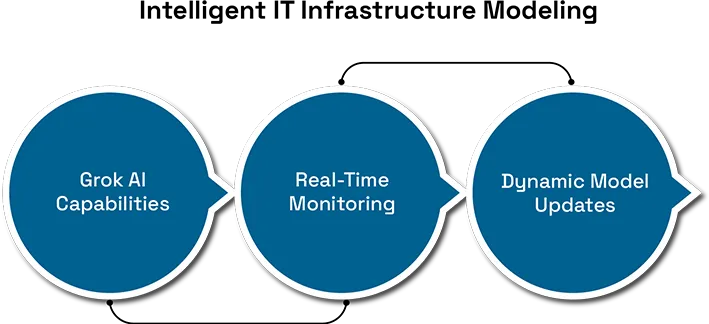
Proactive Incident Prediction and Management
Grok AI doesn’t just find current issues—it’s smart enough to predict when similar problems might happen again in the future. Grok AI can spot signs of future problems by looking at patterns and trends in the data. This leads to cost effectiveness since the IT teams are likely to prevent rather than to cure, hence availing the services most of the time.
The features that Grok AI answers to are accordingly much more effective in lending a strategic look at the resources and incidents. Therefore, in an organization, problems are foreseen to be solved before they commence and create a strain on the organization. This type of management is preferable to the reactive way of addressing problems and issues that have happened.
Scalable and High-Performance Infrastructure
Grok AI runs on a powerful supercomputer that uses 200,000 NVIDIA H100 GPUs to handle huge amounts of data quickly and efficiently. Such a capacity helps Grok AI perform data computations within the shortest time possible, something that runs well in a data centre environment where decisions need to be made based on current or real-time information.
Grok AI has also ensured that the company’s infrastructure is scalable so that more workloads are addressed and is well-equipped to meet the challenges of the current data centers. This scalability is important, especially to organizations that intend to grow without necessarily affecting the capacity or efficiency of the ERP system. As for the infrastructure benefits, the high-performance environment is also suitable for the quick deployment of AI models and services, which allows for the creation of new models as well as quick adaptation to the constantly changing market.
Enhanced Multimodal Data Processing
This makes Grok AI capable of applying different analytical techniques on text, images, and real stream data making it superior to other tools. This multimodal possession enables a much better analysis of the data center environment and fewer decisions result in more efficiency in the process.
From what has been described, one is able to notice that by combining the data modalities that Grok AI uses, it is possible to get information that may not be apparent when analyzing just one form of data. It makes it possible to notice intricate patterns and links within the data, which will contribute towards a proper supervision, allocation, and utilization of the data center’s assets.





